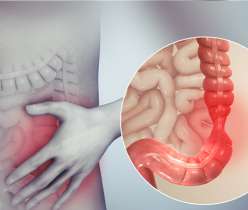Esophagitis is an inflammation or injury to the oesophagal mucosa; it is one of the most common conditions affecting the upper digestive tract. It can cause painful, difficult swallowing and chest pain. Medications help reduce gastrointestinal symptoms.
To treat esophagitis, buy gastro health drugs online to get them delivered at your doorstep.
Causes of esophagitis
Esophagitis is inflammation that may damage tissues of the oesophagus. There are some possible causes of irritation and inflammation:
- Chronic vomiting
- Medical procedures such as aspirin or other anti-inflammatory drugs
- Stomach acid in the food pipe. If you have gastrointestinal reflux disease (GERD), stomach acid leaks backwards into your oesophagus. If this happens regularly, it may cause esophagitis.
- Infections that weaken your immune system
- Allergies often to foods
Esophagitis can have serious consequences that affect your quality of life. If left untreated, esophagitis may progress into a condition called Barett’s oesophagus. This may increase your risk for oesophagal cancer.
Symptoms of esophagitis
You may experience the following symptoms with esophagitis:
- Heartburn
- Sores in your mouth
- Difficulty or painful swallowing
- Feeling that something is stuck in your throat
- Difficulty or painful swallowing
Types of esophagitis
Esophagitis is an inflammation of the oesophagus lining, the tube that carries food from the throat to the stomach. If left untreated, this condition can become very comfortable, causing problems with swallowing, scarring of the oesophagus and ulcers.
The doctors have identified multiple etiologies for esophagitis. These include reflux esophagitis, medications induced esophagitis, eosinophilic, infectious, and radiation esophagitis.
- Infectious esophagitis is a rare form of esophagitis due to bacteria, fungi, viruses, or parasites. People with the weak immune system are more likely to develop this form due to disease or medications. This type is commonly reported in people with diabetes, cancer, HIV, and AIDS.
- Medicine-induced esophagitis is most commonly associated with oral alendronate; some antibiotics like tetracycline, clindamycin, doxycycline, aspirin, mexiletine, potassium chloride, ferrous sulfate, NSAIDs have also been reported as a cause of medicine induced esophagitis.
- Reflux esophagitis develops due to a condition known as gastroesophageal reflux disease (GERD). GERD occurs when stomach content like acids is frequently back up into the oesophagus. This contributes to chronic inflammation and irritation of the oesophagus.
- Drug-induced esophagitis develops when you take certain medications without enough water. This causes the medicine to linger in the oesophagus for a longer duration. These medications include antibiotics, pain relievers, bisphosphonates, and potassium chloride.
- Eosinophilic esophagitis occurs due to too many eosinophils in the oesophagus. This happens when your body over-responds to an allergen. In children, this can make the process of eating difficult. Common triggers for eosinophilic esophagitis include soy, eggs, peanuts, tree nuts, wheat, and shellfish.
Inhaled allergens, including pollens, can also give rise to esophagitis.
Other etiologies include infections, pill esophagitis, local injury caused by medications, radiation, and eosinophilic esophagitis. The most common symptoms in patients with esophagitis are chest pain, dysphagia, and odynophagia.
Risk factors
You may be at risk of esophagitis unrelated to an infection if you:
- Are an elderly adult
- Are obese
- Have a spinal cord injury
- I have had radiation therapy for chest tumours
- Are pregnant
- Consume a lot of alcohol, fatty foods, spicy foods, coffee
- Have many allergies, especially to certain foods
- Swallow the medicine with too little water or get a pill stuck in your throat
- Use certain medicines, including NSAID pain relievers and beta-blockers.
- Have scleroderma, an autoimmune disorder
Diagnosis
To make a diagnosis, your doctor may do the following things:
- Collect information about the medical history and do a physical exam
- Order some series of tests that includes X-rays of your oesophagus and stomach
- Conduct an endoscopy using a tiny camera to look inside your oesophagus for signs of esophagitis.
Treatment
Treatment for esophagitis depends on the cause of the condition. The possible treatments include:
- Therapy (This is to determine the cause of your oesophagus)
- Acid-blocking medicines
- Additional medicines
- Avoidance of certain foods
- Dilation
- Lifestyle changes
- Surgery
Buy gastrointestinal disease treatment online when prescribed. Avoid excessive use of over-the-counter drugs.
Conclusion
Esophagitis is mainly a consequence of gastrointestinal reflux disease. One of the most common causes is gastroesophageal reflux, which can give rise to erosive esophagitis. There are numerous causes of esophagitis; essentially, the presentation is similar, including heartburn, chest pain, odynophagia, and dysphagia. Once your doctor has performed a thorough physical examination and reviewed your medical history, several tests can be used to diagnose esophagitis. Symptoms of esophagitis include nausea, vomiting, chest pain, acid reflux, heartburn, a feeling of something being stuck in the throat, and difficult or painful swallowing. If you have any of these symptoms, you should contact your doctor as soon as possible. The symptoms may return if you do not make the required changes in how you live. Living with this condition means following your doctor’s recommendations on lifestyle changes and medicine use. Buy gastro health medicine online in US from the comfort of your home.




